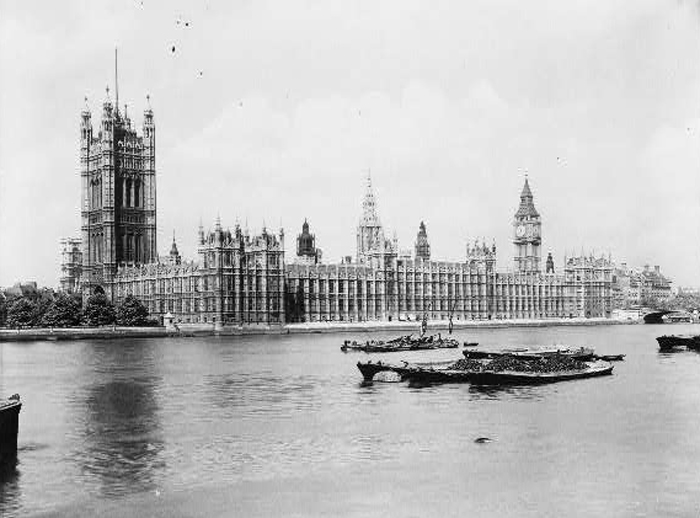Irish constitution bill approved by House of Commons
London, 28 November 1922 – The Irish constitution bill has passed its second reading in the House of Commons without difficulty and without alteration.
Moving the bill, the British Prime Minister, Andrew Bonar Law, told MPs that it was impossible for the British parliament to amend the constitution in any way given that the bill had already been ratified in Dublin and ‘no change we made here could be valid unless it were subsequently agreed to in the Irish parliament. In these circumstances, it would be almost impossible, even if it were desirable, to have this done.’
It was also the case that, under the terms of the Anglo-Irish Treaty signed in London on 6 December 1921, the provisional government set up in Ireland would automatically come to an end unless the constitution bill was passed in London by 6 December 1922.
The British Prime Minister said that the only issue that the House of Commons needed to address was whether or not the bill before them complied with the Anglo-Irish Treaty.

British PM, Andrew Bonar Law (Image: Library of Congress Prints and Photographs Division Washington, D.C. 20540)
Bonar Law’s remarks were reflective of a general reluctance to seriously scrutinise the new Irish constitution. ‘The less said about this bill the better’, remarked Labour’s Ramsey McDonald. ‘Criticism is useless. Sympathy is dangerous’, he added. ‘All that this house can now do in relation to Irish government is to implement its part of the agreement and to allow this bill to become law.’
Speaking on behalf of Ulster Unionists during the Westminster debate, Captain Craig reiterated the belief that the treaty was a ‘most disastrous document’, but he insisted that as long as Northern Ireland’s interests were not encroached upon, it was not their business ‘to interfere between the British government and the representatives of Southern Ireland in any arrangement they might come to in reference to the government of Southern Ireland.’
Nevertheless one speaker used the debate to speak critically of the current situation in the south of Ireland. Colonel John Gretton, while not moving against the bill, emphasised what he considered to be the ‘steady deterioration in the moral character of the people in Southern Ireland.’ This, he said, was borne out by the nature of the crimes that had been reported, which included the ‘brutal and unmentionable attacks on women and children.’
Colonel Gretton’s remarks drew a response from members of the Labour Party who demanded that he provide details in support of his allegations. Colonel Gretton refused to do this for fear, he claimed, of exposing the victims to further indignities.
[Editor's note: This is an article from Century Ireland, a fortnightly online newspaper, written from the perspective of a journalist 100 years ago, based on news reports of the time.]





















